How coronavirus has decimated Melbourne’s CBD
Eerie photos paint a bleak outlook on the future of Melbourne’s world-renowned reputation as a vibrant city, with nightlife spots now ghost towns and formerly bustling shopping strips now virtually empty. So can our CBD be saved from the brink?
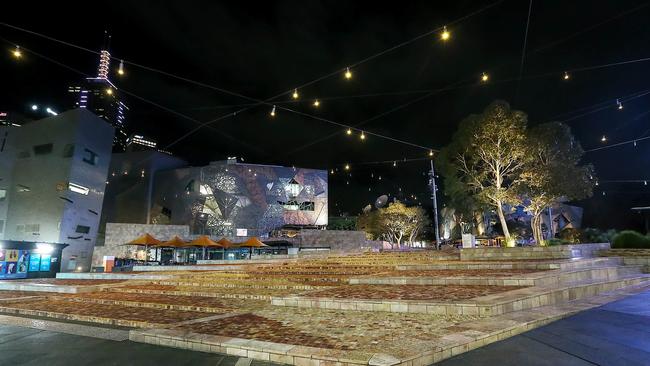
HS Coronavirus News
Don't miss out on the headlines from HS Coronavirus News. Followed categories will be added to My News.
Melbourne’s city centre is in crisis.
New figures obtained by the Sunday Herald Sun reveal how coronavirus has decimated the CBD, with the number of people working and shopping there plummeting from a million before the pandemic to as few as 50,000 a day now.
Work-from-home rules have turned skyscrapers into ghost towers, devastating central businesses and raising massive concerns about the future of our CBD.
Many workers are never expected to return to the city centre as working from home becomes the norm, suiting workers and cutting costs for businesses.
The state government normally has 32,000 workers in the city, but now has just 1900.
There is speculation about just how many will return to the office.
ANZ, which once filled three city buildings with 10,000 workers, now has just 700 in the CBD.
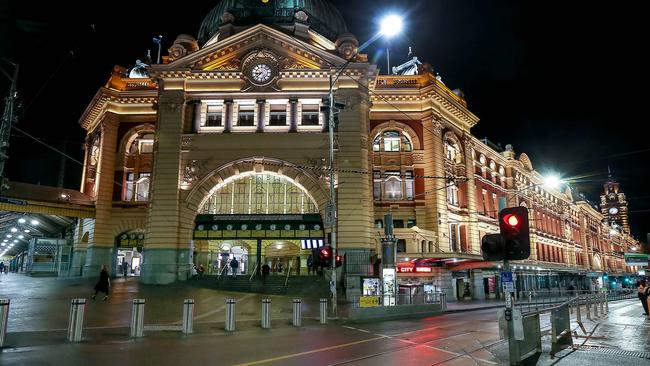
Westpac once had 1200 workers at its 150 Collins St base, but there’s now only 250 there.
Lord Mayor Sally Capp said the city was facing an unprecedented challenge.
“The impacts of COVID-19 are unlike anything we have seen in living memory,” she said.
“The after-effects will be a seismic shift for our city.”
The crisis has led to the Lord Mayor forming a high-powered committee which includes business figures Lindsay Fox and Elizabeth Proust, social entrepreneur Rebecca Scott and restaurateur Chris Lucas, with the aim of reinvigorating Melbourne’s centre.
The Lord Mayor’s Advisory Board will work with state and federal governments and departments to find a way to bring the city centre back to life by boosting its population.
The state government and Melbourne City Council have already begun talks about how to achieve this.
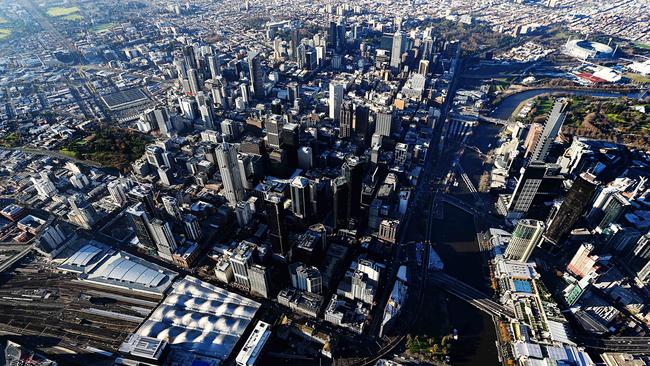
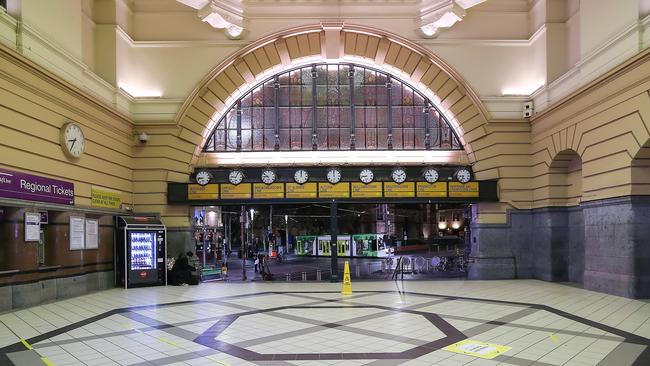
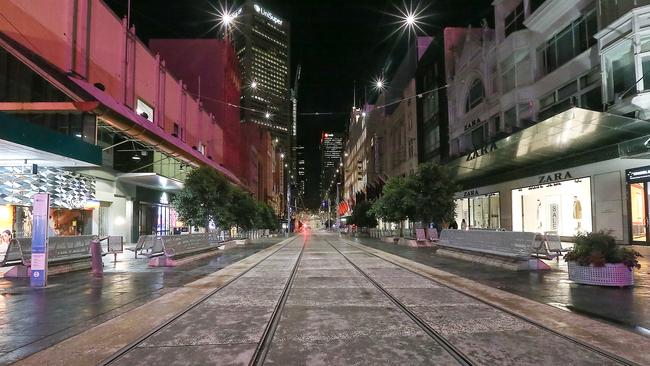
One option being discussed is attracting people from the suburbs to buy affordable housing in the CBD by repurposing existing buildings for residential use. Getting students back into the city in large numbers is also on the agenda.
Pedestrian traffic in Bourke St Mall is down on average 66 per cent compared with this time last year, while Southern Cross station has 88 per cent less foot traffic.
Chinatown has recorded a 60 per cent fall in pedestrian traffic, while Lygon St is 37 per cent down.
Jobs, Tourism and Major Events Minister Martin Pakula met with the Lord Mayor, the Deputy Lord Mayor and about a dozen restaurant and hospitality businesses at the Victorian Chamber of Commerce last Wednesday.
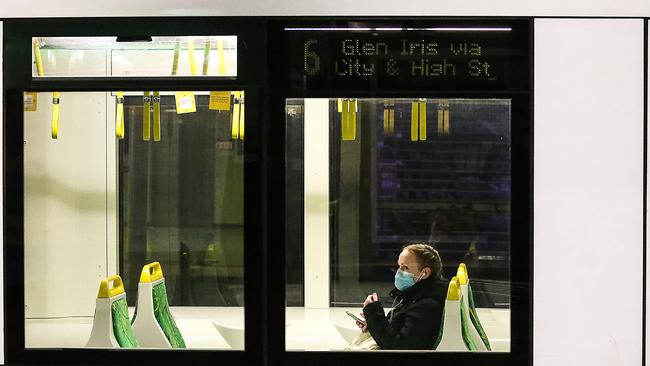
They discussed the current situation and how to fix it.
Cr Capp said most employees in office-based jobs were working from home while the city’s tourist economy was at a standstill.
“This has huge flow-on impacts for cafes, restaurants, bars, retail outlets and hotels,” she said.
“Melbourne’s economy and culture are built on people coming together. Our natural strengths as a city have been hit disproportionately hard by the changes brought in to slow the spread of the virus.
“We need to have bold new thinking about how we can support our city’s economy now and for the next three to five years.
“The City of Melbourne’s economy hit a record of $100 billion last year. We are the engine room of Victoria and generate 25 per cent of the state’s economy.
“When the city is strong, we know that Victoria is strong. People are slowly and safely returning to the city, but pedestrian activity is still significantly down compared to this time last year.”
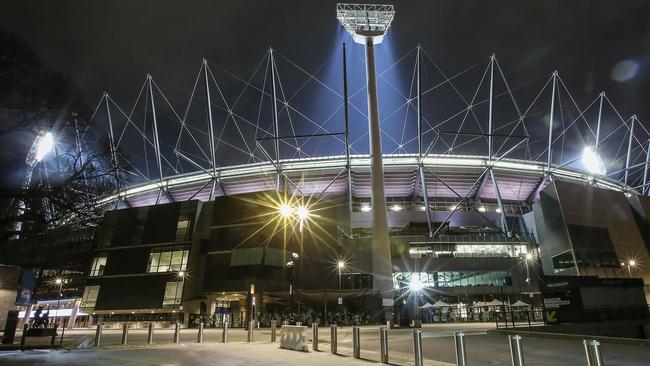
Melbourne’s commercial office vacancy rate is expected to increase to up to 14 per cent.
Australian Bureau of Statistics data indicates that jobs are down 10.6 per cent in the inner Melbourne region, with about 13,000 city organisations accessing JobKeeper.
The Sunday Herald Sun understands some commercial CBD tenants have delayed negotiations over lease extensions or renewals.
Last week NAB mothballed two buildings at Docklands, while ANZ said 90 per cent of office-based staff in Melbourne were working remotely, with a range of plans in place for “if and when” employees could return.
Property Council of Victoria executive director Cressida Wall said it was too early to tell what would happen to the office market.
“No one has an accurate crystal ball, but the Melbourne office market is coming off the lowest vacancy rate in the country and in the state’s history,” Ms Wall said.
“In the medium to long term, it seems unlikely demand for Melbourne office space will decline. There is lots of eagerness to return to the office.”
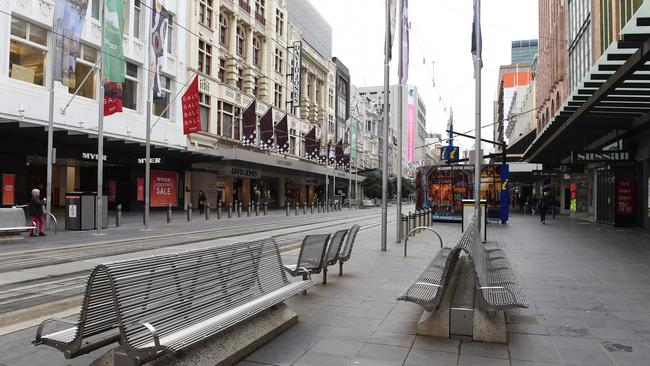
EATERIES OPEN DOORS AND HOPE
Melbourne Lord Mayor Sally Capp has declared the CBD open and ready to welcome diners back.
She said the hospitality sector, which employs almost 40,000 people and contributes more than $2.5 billion to the city’s economy, was reeling as work-from-home orders had left bustling streets deserted.
“These businesses … are a crucial part of the fabric of our city and they need our help now,” she said.
Restaurateur Andrew McConnell opened his new restaurant, Gimlet, on Tuesday, in the historic Cavendish House on Russell St. He said it was great to welcome the first diners into the 150-seat restaurant and cocktail bar, even if they were restricted to just 20 at a time.
“We were geared up to open when restrictions were to be eased to 50 diners, but for now we’re managing the best we can. We’ll tread water for a while until we can ramp it up,” he said.
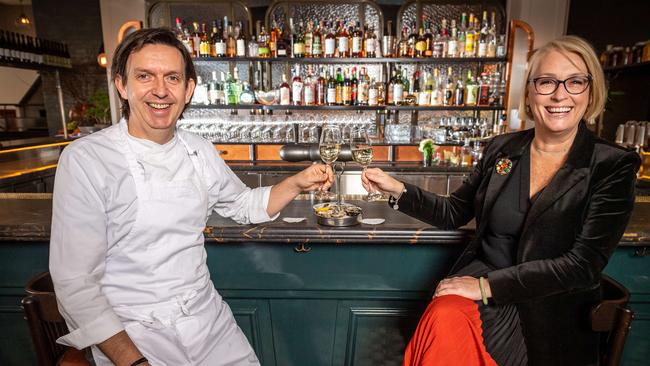
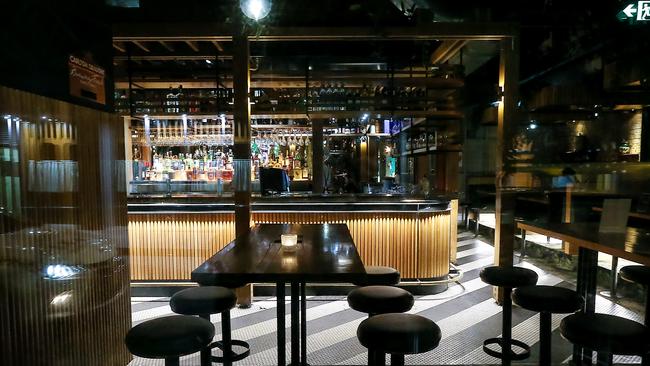
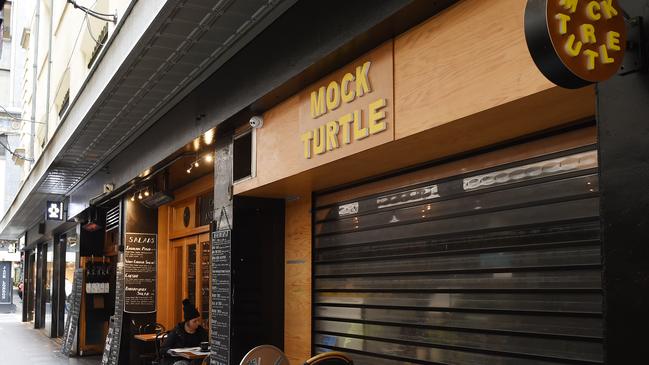
Mr McConnell said the team had been overwhelmed by the support of diners and industry colleagues.
“City operators have found it very difficult, (but) there’s been great camaraderie and support. It’s the first time I’ve seen the industry come together and support each other like this. We’re all on a knife’s edge,” he said.
“It feels good to see people in the space. The response from guests has been great, they love the room and love coming out for a meal. It’s important for people to know (the city) is open, we’re safe and we’d love to see you.
“The safest place to eat is in a restaurant. The industry has taken on these new laws, and restaurants are used to complying with health and safety laws.”
Cr Capp said it was important for people to support restaurants now, as without their custom many venues wouldn’t survive.
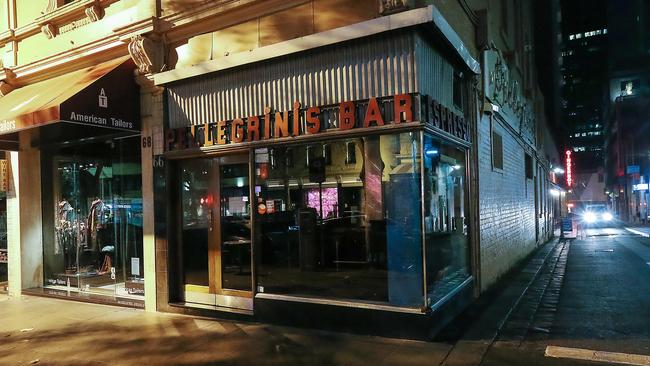
“Please support your old favourites, and try somewhere new, by dining in or even ordering out,” Cr Capp said. “These businesses need our patronage to ensure the hospitality industry and workers can survive.”
It comes as the $800 million 80 Collins development opened its doors this week.
The new landmark on Collins and Exhibition Sts includes 40 storeys of offices and the 255-room boutique Next Hotel, plus high-end retail and hospitality spaces on a network of laneways.
These include the yet-to-be-named project from restaurateur Chris Lucas, as well as Farmer’s Daughters, an eatery that celebrates the produce of Gippsland, scheduled to open in October.
NINE PUBLIC HOUSING TOWERS, MORE POSTCODES IN LOCKDOWN
